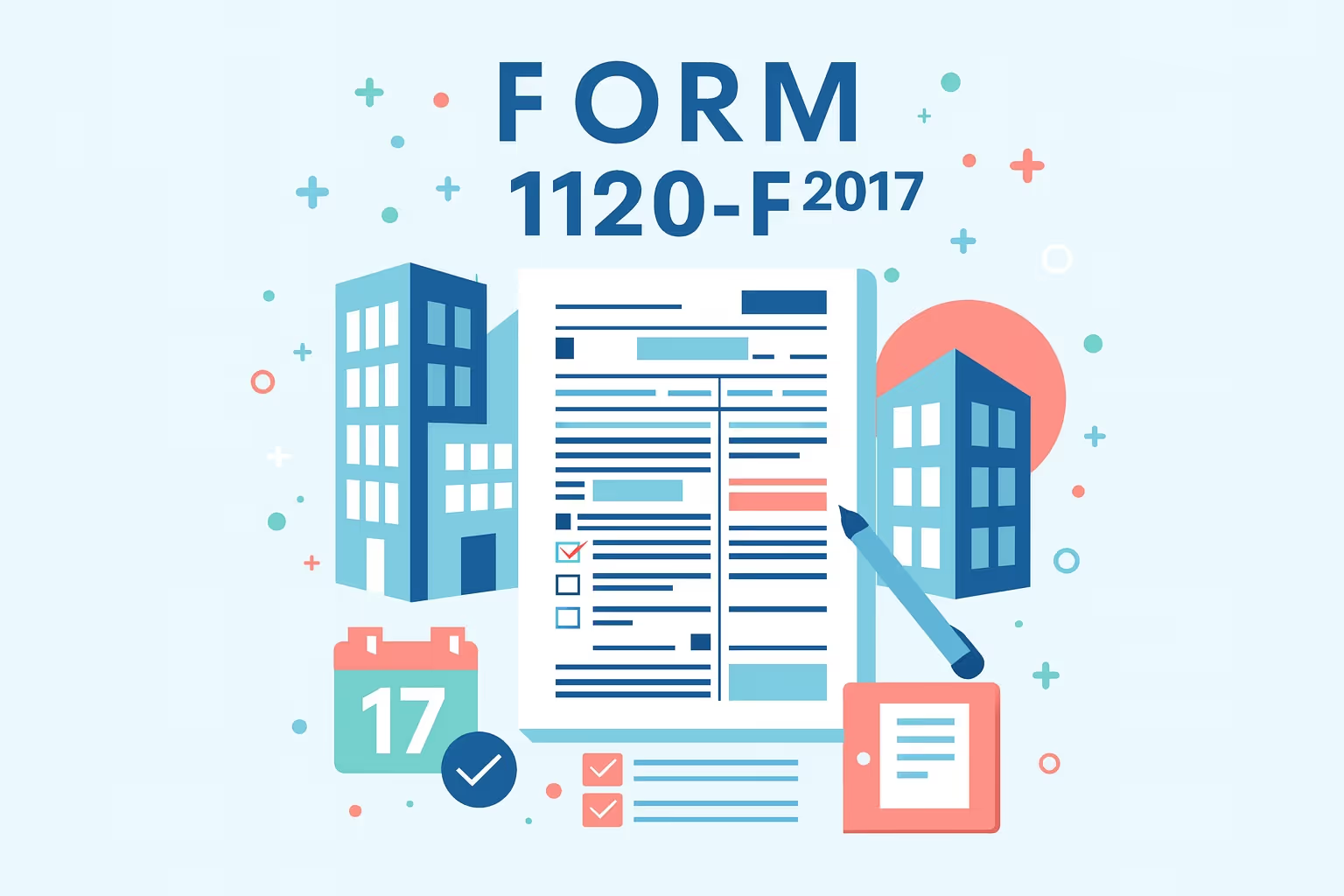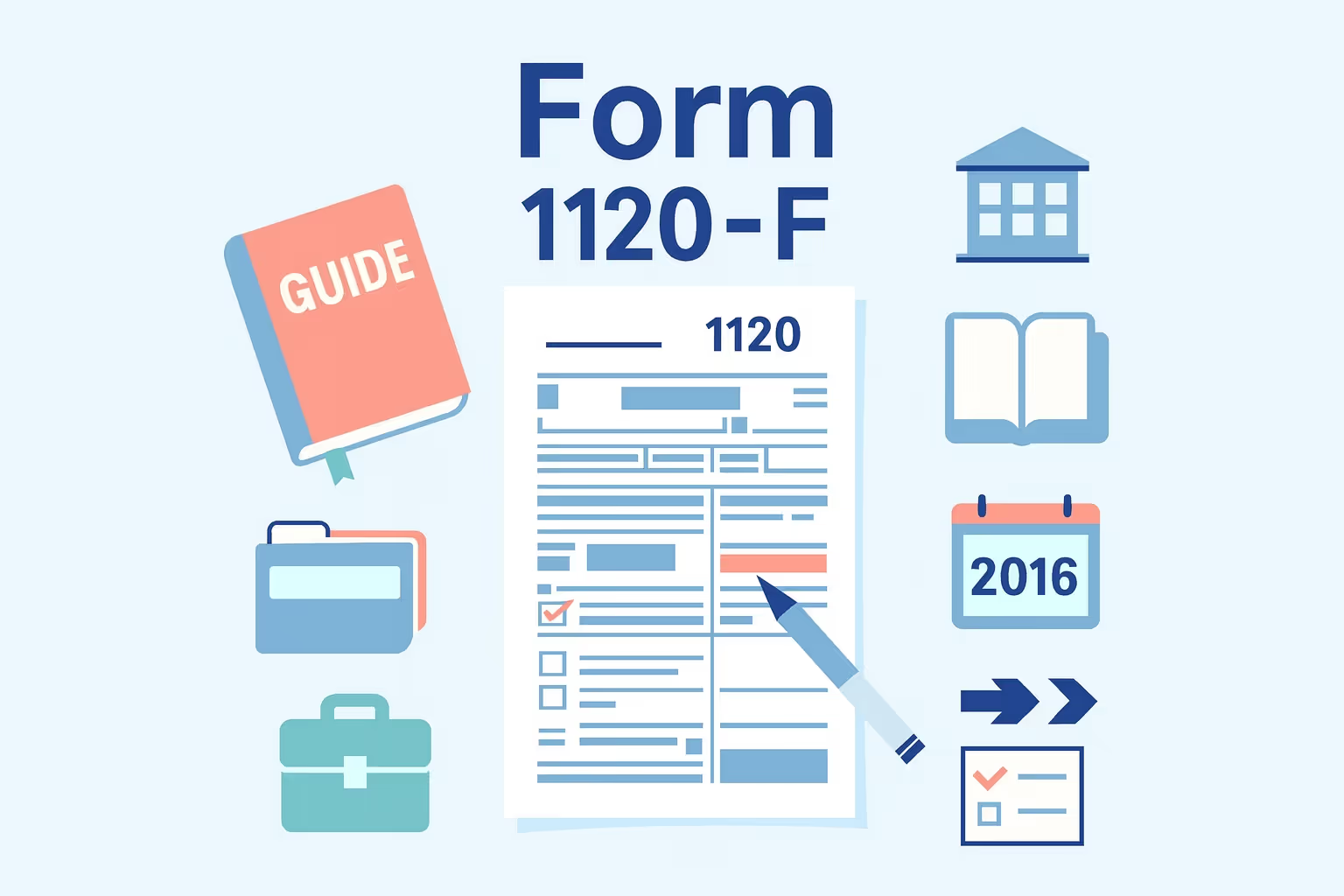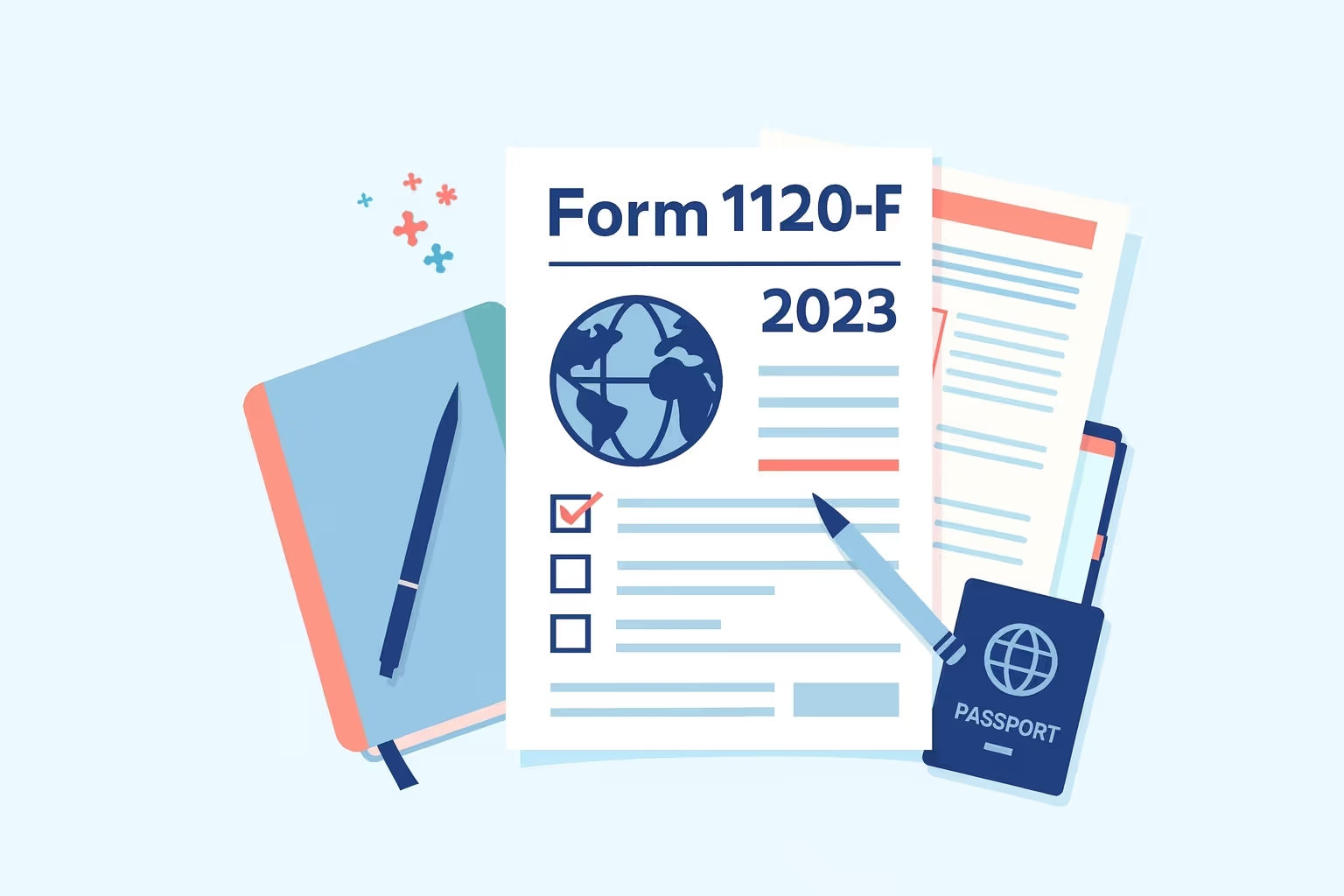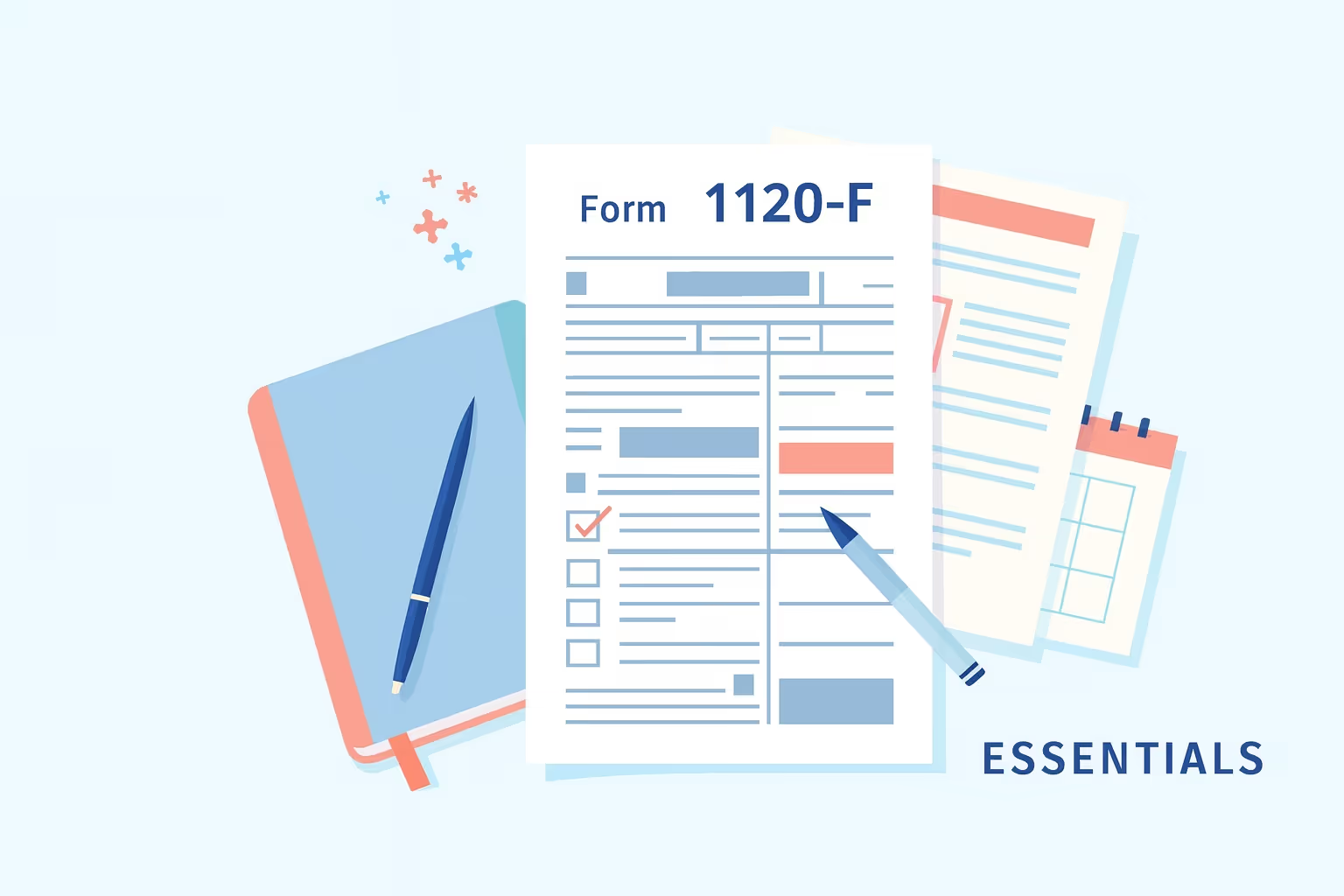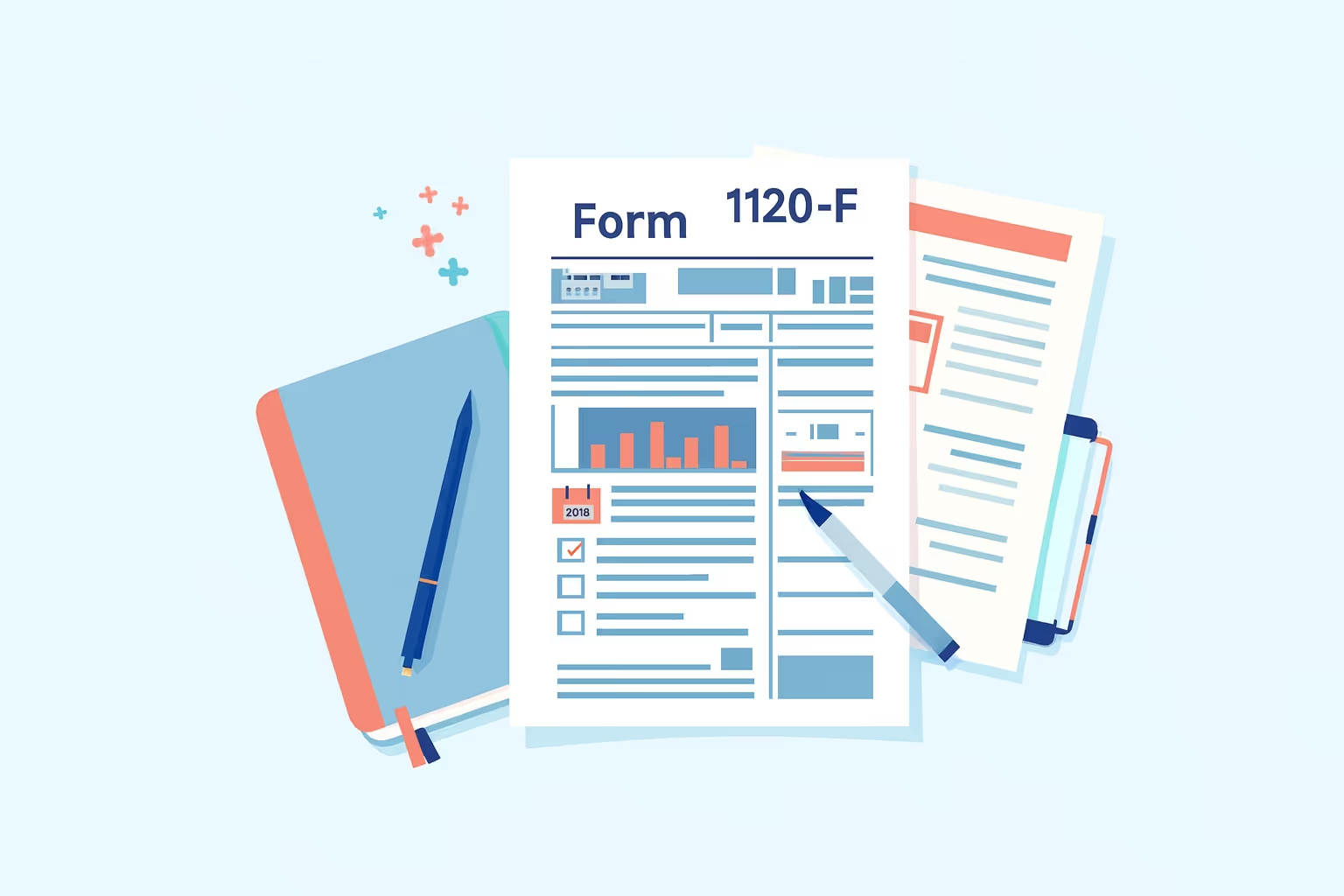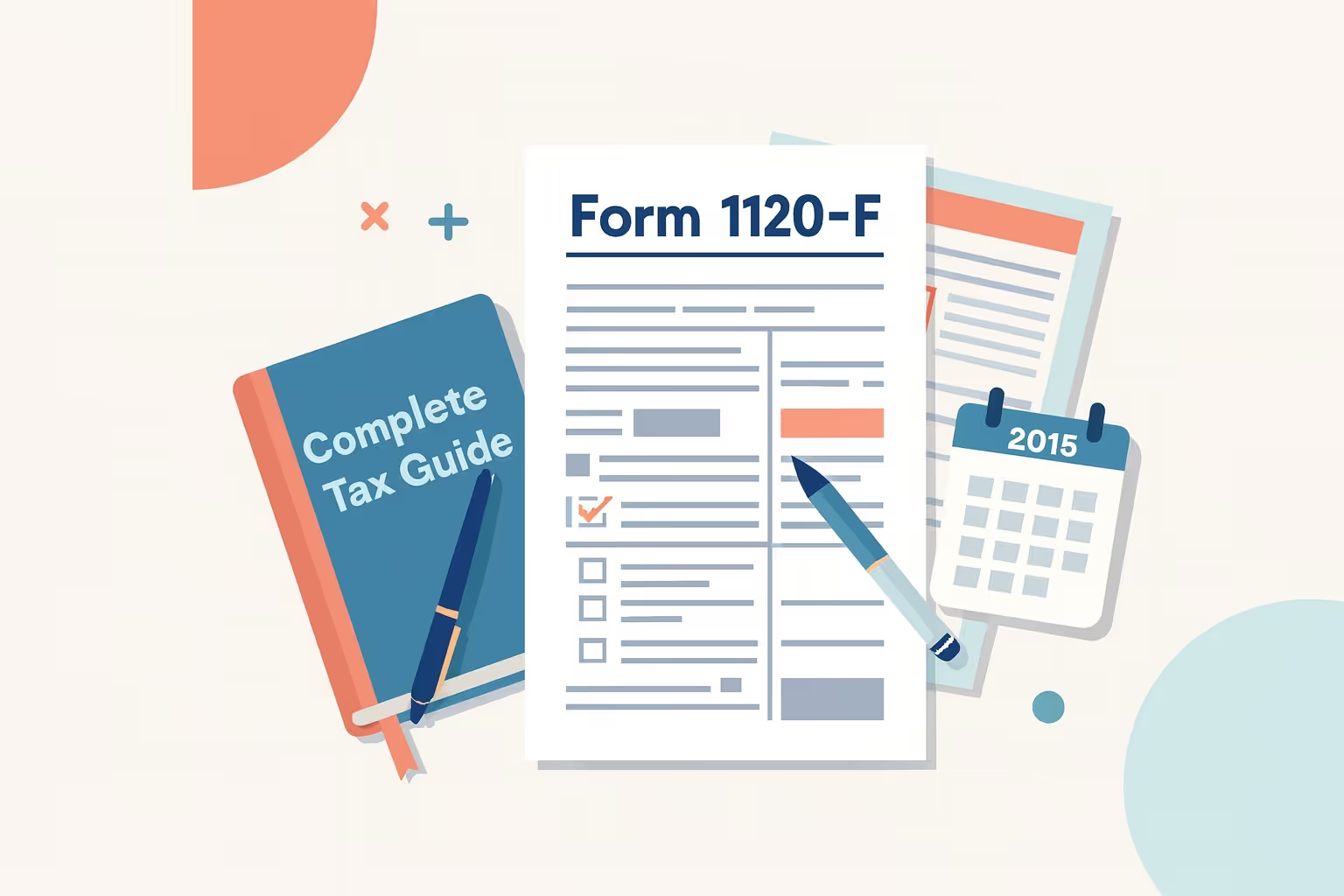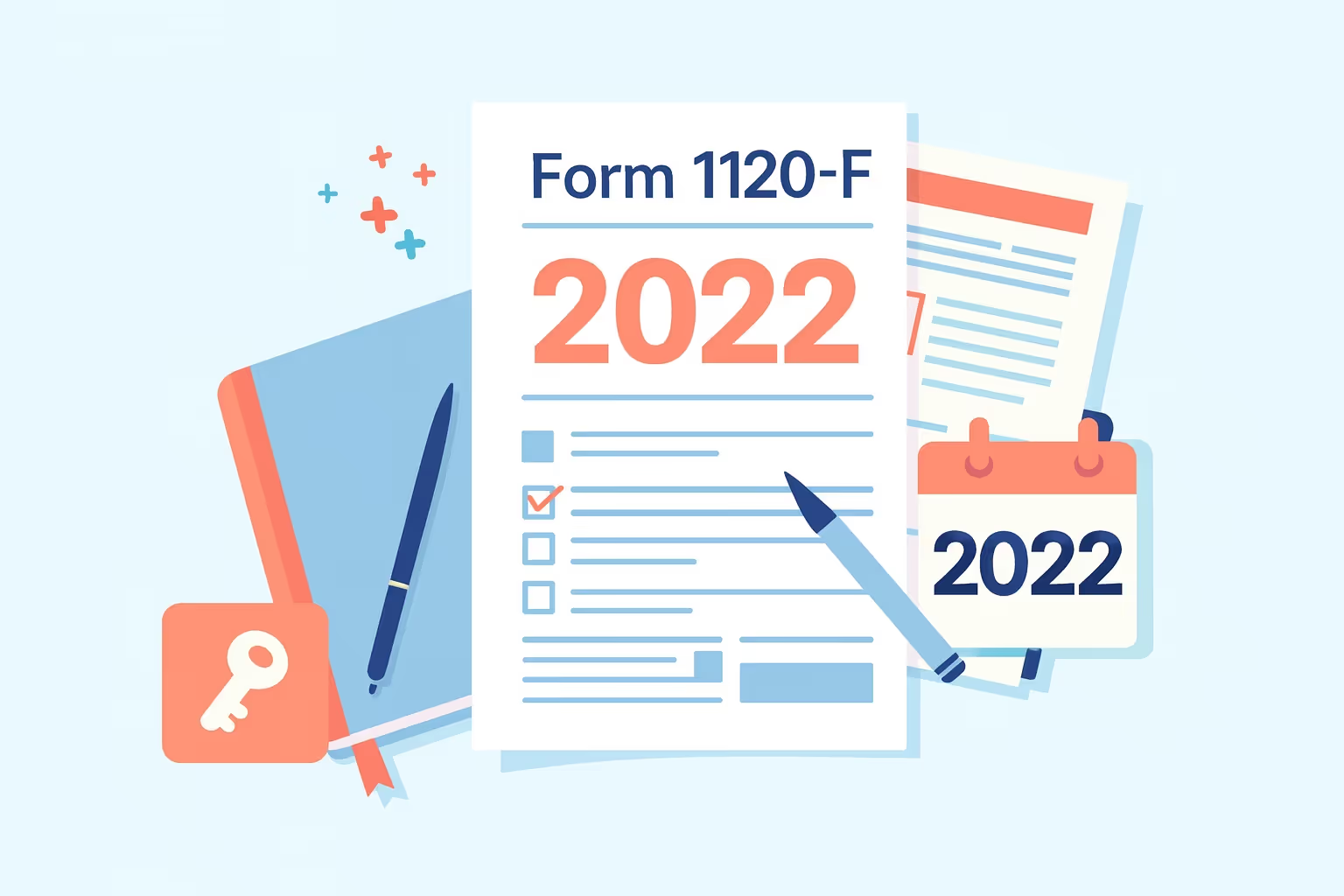
What IRS Form 1120-F (2025) Is For
IRS Form 1120-F (2025) serves as the U.S. income tax return required for every foreign corporation with effectively connected income from business activities within the country. It ensures income, deductions, and profits from trades, services, or real property are classified adequately for tax purposes. This form applies to corporations that conduct operations through a permanent establishment or maintain an office in the United States.
Foreign corporations file this return to determine taxable gains, refunds, or payments under applicable tax treaties and branch profits tax regulations. Filing accurately under the correct tax year helps corporations maintain compliance with IRS laws and foreign country reporting standards.
Before you file, review this step-by-step business income tax guide.
When You’d Use IRS Form 1120-F (2025)
Foreign corporations file IRS Form 1120-F (2025) when they have effectively connected income from business activities in the United States. The form applies to entities engaged in trade, personal services, or real property transactions that produce taxable income under U.S. law.
Filing Situations for Foreign Corporations
Companies must file when operating through a U.S. branch, office, or permanent establishment in the United States. Foreign corporations from any country conducting business activities that generate taxable gains or income are required to submit this return.
Compliance and Reporting Obligations
The form reports income taxes, branch profits tax, and treaty-based refunds for the applicable tax year. Filing ensures transparency and full compliance with IRS rules on foreign corporation tax returns.
Key Rules or Details for the 2025 Tax Year
Foreign corporations filing IRS Form 1120-F (2025) must follow updated tax rules that apply to the current filing period. Understanding these requirements ensures accurate reporting of effectively connected income and prevents penalties for late or incomplete filings.
2025 Filing Updates and Requirements
- Late Filing Penalty: A minimum penalty of $510 applies when a corporation files its return more than 60 days late or owes less than that amount.
- Electronic Filing Expansion: The IRS now accepts amended returns for the 2025 tax year, and corporations can file them through approved e-file systems.
- Branch Profits Tax: Foreign corporations with permanent establishments in the U.S. remain subject to income tax when they repatriate profits to their home country.
- CAMT Relief: Foreign corporations with permanent establishments in the U.S. remain subject to income tax when they repatriate profits to their home country.
- Treaty-Based Disclosure: Form 8833 must accompany any claim that a corporation files under applicable international tax treaties.
Step-by-Step (High Level)
Foreign corporations filing IRS Form 1120-F (2025) must complete several key actions to remain compliant with U.S. tax laws. Each step ensures the accurate reporting of effectively connected income and deductions while meeting all treaty-based obligations for the current tax year.
Four Essential Steps for Filing
- Request IRS Transcripts: A corporation should use Form 4506-T or IRS online services to verify prior payments and withholding credits before completing the return.
- Prepare and Complete the Correct Form: A corporation must fill out the 2025 version of Form 1120-F and ensure all income, deductions, and gains are reported accurately.
- Attach Supporting Schedules: A filer should include Schedule H, Schedule I, Schedule P, and Form 8833 when submitting treaty-based filings involving foreign corporations.
- Submit and Retain Records: A corporation must file electronically through authorized e-file providers or mail the return to the Ogden, Utah, IRS center and keep all documentation for three years.
Common Mistakes and How to Avoid Them
Foreign corporations filing IRS Form 1120-F (2025) often face challenges that affect accuracy and compliance. Knowing what goes wrong—and how to correct it—helps maintain proper tax reporting, preserve treaty benefits, and reduce unnecessary liabilities for the current tax year.
Frequent Errors and How to Fix Them
- Omitting Protective Returns: A corporation should file a protective return even if its effectively connected income is uncertain to safeguard deductions and refund rights.
- Ignoring Treaty-Based Disclosures: A corporation must attach Form 8833 when claiming tax treaty benefits to avoid $10,000 penalties and ensure transparency.
- Incorrect Expense Allocation: A filer should review Schedule H to allocate deductions accurately between ECI and non-ECI categories.
- Misclassifying Income: A corporation should apply the business activities and asset-use tests to distinguish effectively connected income from non-ECI.
- Overlooking Branch Profits Tax: A corporation must report repatriated profits annually to avoid additional branch-level assessments.
Establishing internal review procedures and seeking expert guidance ensures consistent compliance and reduces the likelihood of future filing complications.
What Happens After You File IRS Form 1120-F (2025)
Once a foreign corporation files IRS Form 1120-F (2025), the IRS reviews the return to verify income, deductions, and treaty-based claims. Processing times vary depending on the complexity of effectively connected income, business activities, and supporting schedules. The IRS may request clarification or additional documentation before finalizing the account.
If taxes remain unpaid, interest accrues until full payment is received. Corporations owing $25,000 or less can apply for installment arrangements using Form 9465. The IRS also reviews eligibility for refunds or adjustments related to overpaid income taxes.
Maintaining accurate records and responding promptly to any notices helps prevent delays in the assessment or refund issuance process.
FAQs
Who must file IRS Form 1120-F (2025)?
A foreign corporation must file IRS Form 1120-F (2025) if it earns business income or effectively connected income within the United States during the tax year. This includes companies with a permanent establishment, office, or branch that is involved in trade, services, or real property interests, subject to U.S. income taxes.
What qualifies as effectively connected income (ECI)?
Effectively connected income ECI includes gains from trade, personal services, or transactions tied to U.S. business activities. Corporations determine ECI using the asset use test and business activities test to separate taxable income from non-ECI sources.
How does a tax treaty affect a foreign corporation’s filing?
Tax treaties between the United States and a foreign country can lower or exempt taxes on specific categories of income. To claim these benefits, corporations must disclose treaty positions and attach Form 8833 when filing the tax return.
What is the branch profits tax?
The branch profits tax applies to foreign corporations with permanent establishments that repatriate profits earned in the United States. These profits are taxed at graduated rates under specific IRS regulations for international companies.
Can a corporation claim a refund for overpaid income taxes?
Corporations may request refunds within three years of the original due date or two years after payment. Refunds are issued for overpaid income tax, excess withholding, or errors reviewed under IRS regulations and applicable tax treaties.
For more resources on filing or understanding prior-year IRS forms, visit our business income tax form summaries and guides.




















